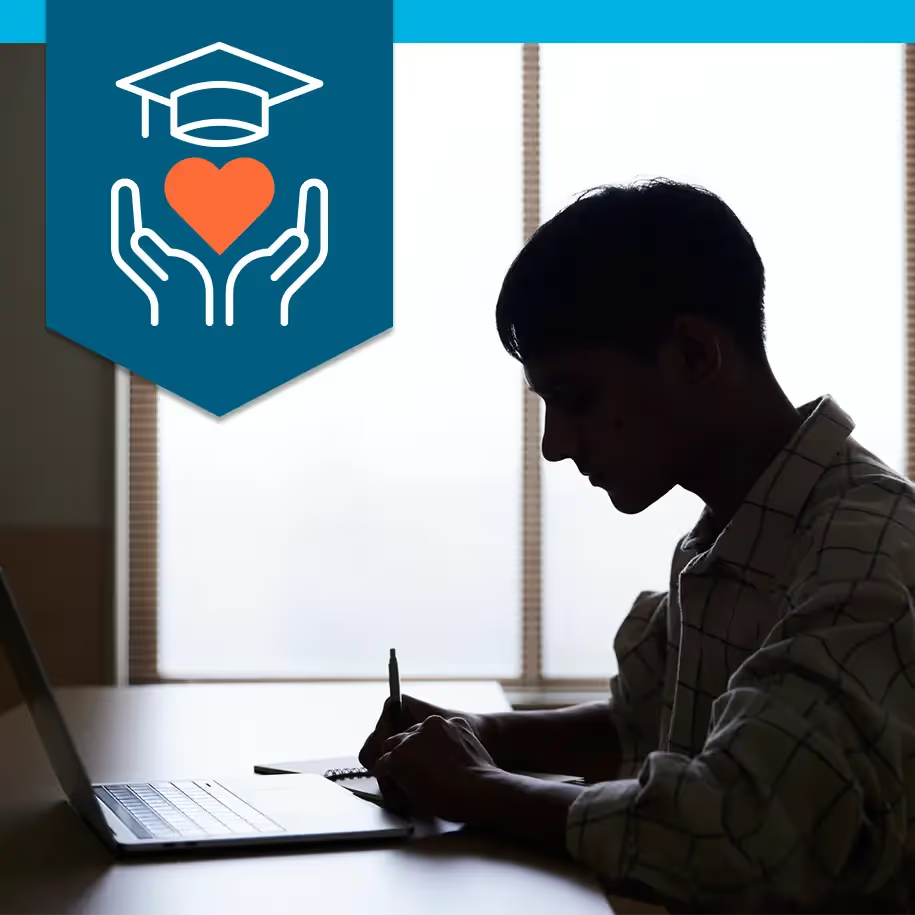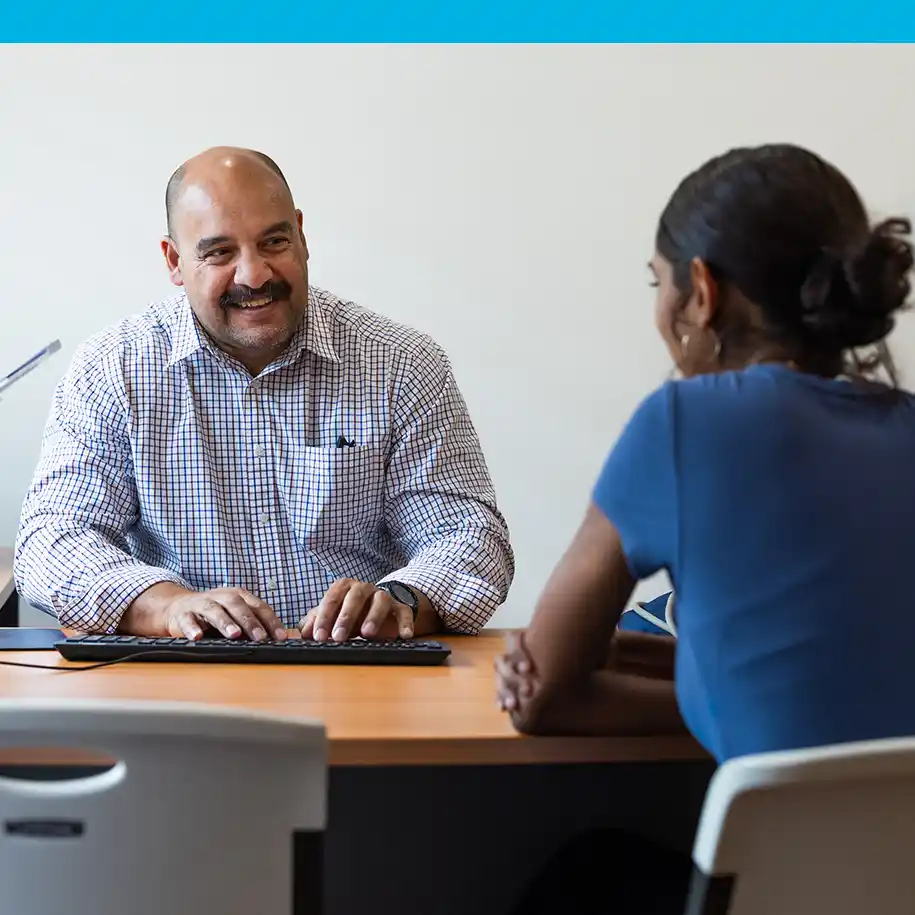
Sharing stories of students supported through Emergency Coaching program
Behind every statistic is a story
From September of 2020 through December of 2021, the Emergency Coaching Network helped over 1,000 students across the country. This initiative was a partnership between InsideTrack – who provided student coaching services and help for student support staff – a network of 20 colleges and universities, and two nonprofit funders, ECMC Foundation and Strada Education Network. Being able to mobilize the resources needed to form this much-needed network — providing student support coaching at no cost during the pandemic — is a testament to the dedication of student support professionals at every level. At a time when students were struggling with issues extending well beyond the classroom, we were honored to be able to provide support. With that in mind, here’s a look at three students helped by their coaches in the Emergency Coaching Network. Monique, Dan and Gail are real students, but their names have been changed to protect their anonymity.
Student Story #1: Putting herself — and her health — first
“Monique” was 52 years old and four classes away from completing her associate degree. Her goal was to then go earn a bachelor’s degree in business management. During one of her calls with her InsideTrack coach, Monique made a statement that summed up her motivations: "I gave up so much for my child and now she is a woman. I need to do something for myself and change my life — I want my degree." She was tired of feeling limited to sales and retail.
Due to COVID restrictions and health issues, Monique became unemployed. She had been recently diagnosed with diabetes and was having a difficult time managing her glucose levels. Swings in her blood sugar affected her eyesight, and her glucose numbers got so high that the doctor said she could have had a stroke. As a result of her cascading health struggles, Monique received “incomplete” grades in several of her classes. Because of that, her financial aid was suspended and she had to make the decision to drop her planned summer courses.
Through conversations with her coach, Monique identified four areas she wanted to address: health, employment, finishing her assignments in her incomplete classes, and appealing her financial aid suspension. She decided that health was her top goal, so coaching centered around that, with the understanding that she needed to get her diabetes in check before she could focus on school. Monique set a goal to get her blood sugar under control within a few months. Knowing that physical activity would help with her diabetes, she committed to a plan to walk three days a week for 15 to 20 minutes and use her support system to help her stick with that goal.
Monique’s coach sent her some additional diabetes management and education links, plus links to low-cost/free counseling resources for women of color, as well as meditation apps. As Monique felt stronger and ready to move forward, she began working with her coach on her educational and employment goals.When her coach asked her why the hard work she was doing was worth it, Monique’s reply explained her mindset beautifully: “At the end of the day, it's not about others, it's about me, the individual — my life, being healthy, being strong. It’s about achieving and about me and my self-worth. For the first time, I am doing something for myself that will make me happy."
Student Story #2: Playing to succeed
“Dan" came from overseas as a student-athlete for a large Division I university. Attending school in the United States had always been a dream for him, and here he was, studying for his dream career as well as playing on a college sports team. When he first met with his coach, he was in his final year at school and struggling with a lack of motivation, which was unusual for him. He also was questioning some behavior that was not aligned with his values. To connect with his teammates and other friends, he was "partying" every weekend and he did not like how he felt afterward. He was enjoying the social connection, but his family does not drink alcohol and the dissonance between his weekend drinking and the values with which he was raised was stressful for him. In addition, he was aware that the drinking and his low energy/decline in commitment to school might be connected. He also was anxious about what would happen next for him now that he was close to graduation.
As Dan talked with his InsideTrack coach, it became apparent that he tended to over-commit himself and would become exhausted by the pressure involved by so many demands on his time and energy. As a successful athlete, he was a high achiever. But he did not maintain practices that allowed him to renew and replenish his energy. As a result, he felt depleted and the weekend drinking only added to the emptiness he was experiencing. Over several weeks, Dan worked with his coach to identify options for social interactions that didn’t center around drinking, establish a self-care plan that complemented his existing commitments, and reconnect with the goals that motivated him to choose his major and to study in the US. He noticed significant improvements to his mood and self-esteem when he made the changes he identified with his coach.
A month later, Dan contacted his coach again. He had graduated and was working full time and experiencing the emptiness that had surfaced in the spring. He found that he had a lot of extra time on his hands and he did not know how to fill it. He felt lost outside of work. Most of his friends had moved to different cities after graduation, his relationship with his girlfriend appeared to be ending and he was "scared to feel lonely." Through discussion with his coach, he identified that an underlying part of the problem was that he had stopped working out and had stopped playing the sport he loved. Together, he and his coach brainstormed ways for him to establish new connections — including volunteering to teach his sport to local youth. He committed to reestablishing a workout routine because physical activity improved his mood, but he also realized that he did not feel up to meeting new people and might need some time to digest all of the changes in his life. His coach provided several resources to support a healthy approach to this time of introspection and continued to touch base weekly.
Student Story #3: Finding solace in school when tragedy strikes
In late February 2021, “Gail,” an adult student at a small, southwestern community college, reached out for support. Her parents had both died under heart-wrenchingly difficult circumstances. She was dealing with communication with police detectives, the Veterans Administration, funeral planning, and all the other tasks that come with the sudden and unexpected passing of a parent, as well as her work and school work.
Gail had a strong spiritual life and a good support system and was working with a mental health counselor. She was in touch with her professors and kept up with her school work because she found it to be a piece of normalcy — a respite from grief and funeral planning. To ensure that she had as many supportive resources as possible during this terrible time, Gail reached out to her coach before the news of the circumstances of her parents' deaths was expected to hit the newspaper.
From that point on, Gail remained in regular contact with her coach, talking on the phone as well as exchanging emails and texts. She expressed deep gratitude for the Emergency Coaching services and specifically for her InsideTrack coach, saying that throughout this whole ordeal, she has been "overwhelmed with human kindness."
Gail also said she appreciated the way her coach gave her space to just talk about what she was feeling at a time when she needed to be very focused on coping. The interactions with her coach being faced with an unimaginable family tragedy, Gail was able to use her coach as a sounding board — the voice of calm and comfort in a storm. Gail’s goal was to finish her coursework at the community college and move on to earn a four-year degree in a field where she could help others, as much as she had been helped.
Monique, Dan and Gail are powerful examples of why the Emergency Coaching Network program was created. The impact on these three students — and more than 1,000 like them — shows what can happen when organizations partner together for the greater good of students in need. To learn more about the Emergency Coaching Network, download and review the comprehensive program evaluation report.
Coaching solutions proven to advance all learners
Whether you’re looking to help students persist through completion or to improve career outcomes for job seekers and employees, our holistic coaching solutions can help you achieve meaningful outcomes.



